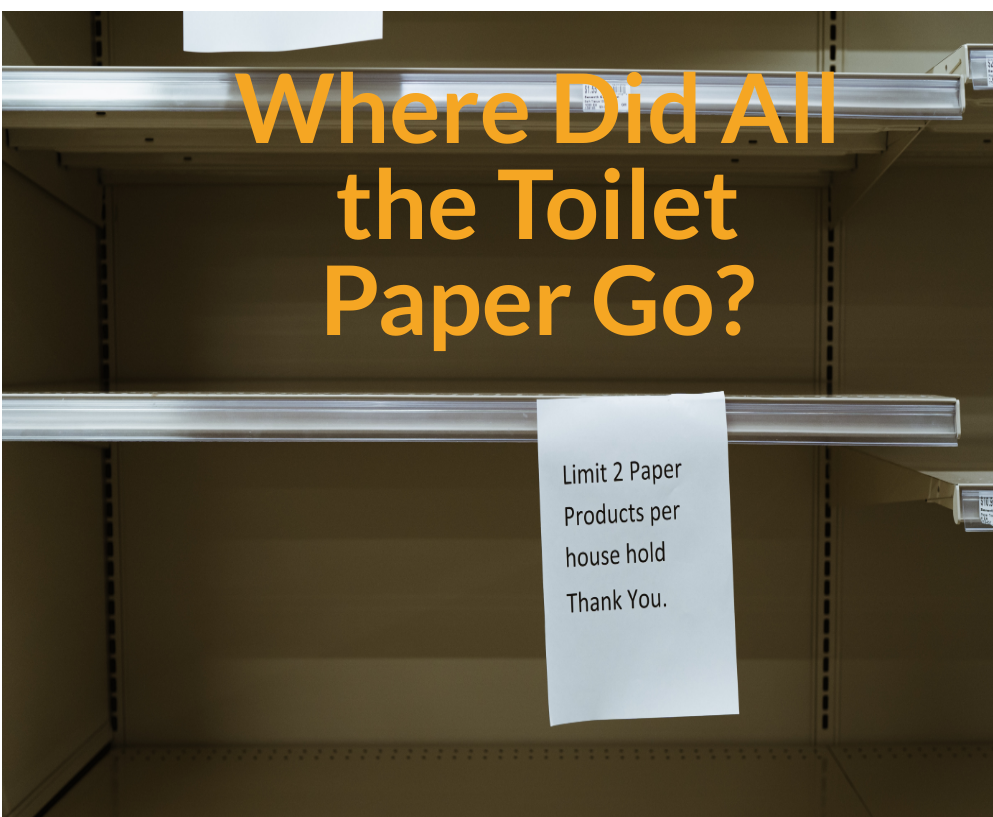Understanding Hoarding Responses to Covid-19: Where Did All the Toilet Paper Go?
Understanding Hoarding Responses to Covid-19: Where Did All the Toilet Paper Go?

Hoarding behaviors range from the normal (i.e., acquiring and saving items we do not need and/or will not use) to the clinically diagnosable (i.e., having areas of your home that are not usable due to clutter). Most of us fall somewhere on this continuum. In times of crisis, humans and other animals can have an increased drive toward hoarding behaviors. However, these efforts to secure material resources can be problematic to the individual and our community.
Now is certainly a time of stress for many people. In addition to health issues, people are stressed about losing employment or being over-worked. They are also concerned about having basic supplies to meet their needs. Anxiety about finances and resource availability can lead to hoarding behaviors. Believing that you are “doing something” to prevent your fears can give you a false sense of control and temporarily relieve anxiety. The problem with using hoarding behaviors to cope is that the feelings of situational control and the resulting anxiety relief are so very temporary, leading individuals into a cycle of even more hoarding behaviors.
The impact of over-acquiring on the community is clear. Stores have been overwhelmed due to feared disruptions in availability, even when products are not in short supply. Periodically, people who are in need cannot get things like toilet paper and medications. Pharmacies are dealing with this situation as people are trying to hoard certain medications in hopes that they may be used as treatment in the future. Gathering these medications gives a short-term sense of relief; however, it puts people who truly need this medicine at risk. People who currently use certain medications for symptom relief or treating their health problems are now without. These medication-hoarding behaviors could prove very harmful to patients both physically and mentally.
There are some strategies to quell the natural impulse to acquire more than is needed. Shopping with a list and not deviating from this list is one strategy. You will also want to include quantities on your list that will supply you up to your next shopping trip, not until the next decade. Making sure you are doing all you can to manage stress is also helpful. Thirty minutes of daily moderate cardiovascular activity, progressive muscle relaxation, mindfulness meditation exercises, and scheduled enjoyable activities are a few things to try. If you need more support, ADAA has therapists who can provide helpful, individualized advice about coping with this crisis.














